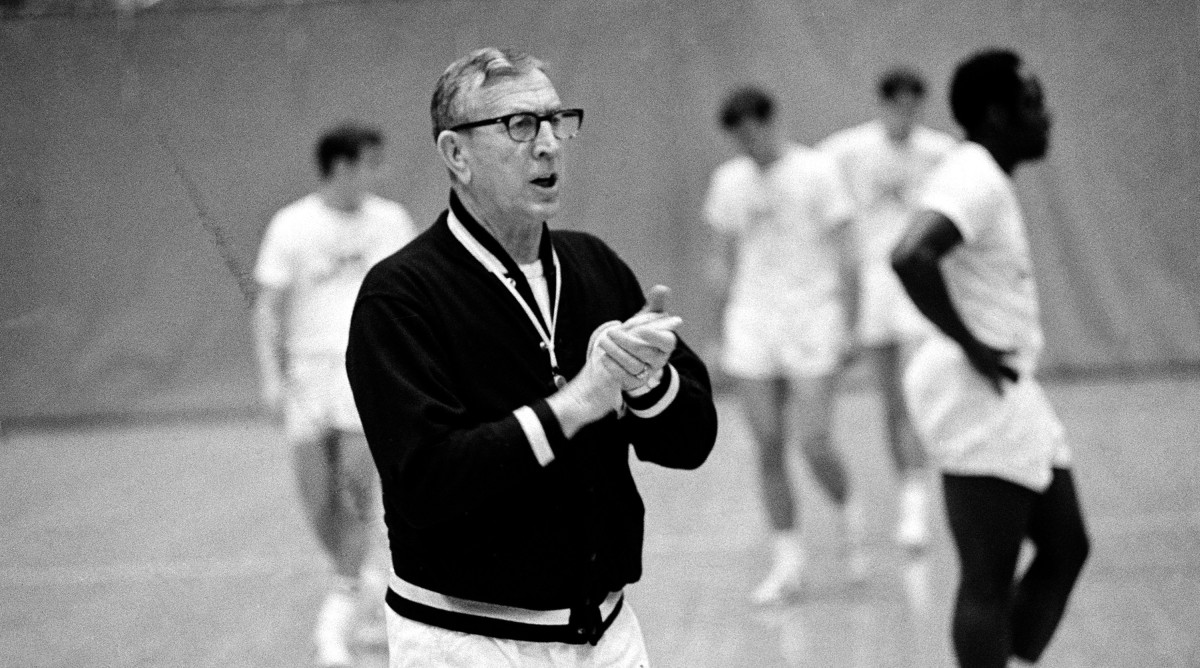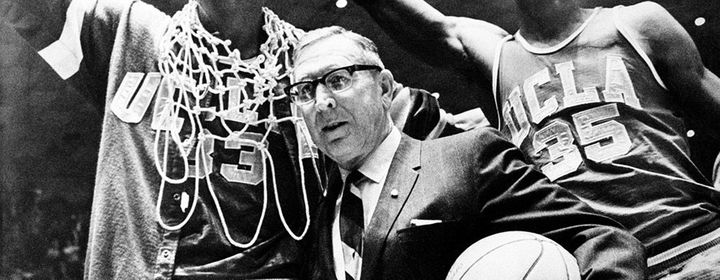“Make each day your masterpiece” ~ John Wooden
John Wooden was the legendary American basketball coach.
His team won ten National Collegiate Athletic Association (NCAA) national championships in a 12-year period as head coach for the UCLA Bruins.
He coached well-known NBA athletes like Kareem Abdul-Jabbar and Bill Walton.
And he coached lesser-known players who went on to apply the values they learned from him in life and business. Even influencing the groundbreaking scientific research of Epigenetics of Dr. Jeffrey Bland, who was coached by John Wooden. Dr. Jeffrey shared that, “The impact that he had as a lesson plan of life, was so powerful for me that when I then transferred to the University of California at Irvine, … , I carried the messages not just about basketball, but about life.”
How did Coach Wooden think of success?
You may think that a basketball coach with a record like Wooden’s must have been fiercely focused on winning. And you’d be wrong.
In his early years as a teacher he observed that a lot of pressure was placed on students to achieve an A or a B. And then they’d “feel like that they had failed” if they got a C. And he thought, “That’s not right.”
“I didn’t like that way of judging.”
It was the same with how the Ulumni judged athletic teams. “If you won them all, you were considered to be reasonably successful, not completely. There was a season where we didn’t lose a game. But it seemed we didn’t win each individual game by the margin that some of our alumni had predicted.”
“But I didn’t like that.”
Instead he wanted to give his students coached by him something to which to aspire, “other than just a higher mark in a classroom or more points in some athletic contest.”

Wooden’s definition of success
He was raised on a small farm in Southern Indiana and his dad tried to instil in him and his brothers, “Never try to be better than someone else. Always learn from others. And never cease trying to be the best you can be. That’s under your control.”
“If you get too engrossed, involved, and concerned in regards to things over which you have no control, it will adversely affect the things over which you have control.”
Success was not reputation and it was not achievement.
Instead this is how Wooden defined success, “I coined my own version of success which is, ‘peace of mind attained only through self-satisfaction in knowing you made the best of which you’re capable.'”
In other words, the peace of mind that comes from doing your best is success.
This is definitely not the definition you may find in Webster’s dictionary. But I’m not sure of people who have read the dictionary and then gone on to achieve their potential.
By eliminating the need to prove oneself or to be better than someone else he could focus on what mattered. He coached people to play at their best. To look for the pass. To go where the rebound would be. To practice their shots. To play to their strengths.
And he made a point, no player was allowed to critique another player. That was what he was paid to do. They’d get benched if they did.
John Wooden’s is widely recognized as one of the greatest sport coaches to have lived.
Let’s just say… he knew how to point his players in the right direction. “there is a difference between winning and succeeding” I understand now why his players were playing to their potential. And it wasn’t because of bravado. It was getting values right. To John Wooden success had nothing to do with a score, winning matches, or besting someone else. In fact he said that if his players acted noticeably different after a game they won or lost, that was a problem. He was very strict about it.
Ironically he is widely recognized. And he did have a good track record. Yet, what John Wooden may have wished would live on would be the knowledge that you are capable. And success is the self-satisfaction that comes from knowing you made your best effort.














